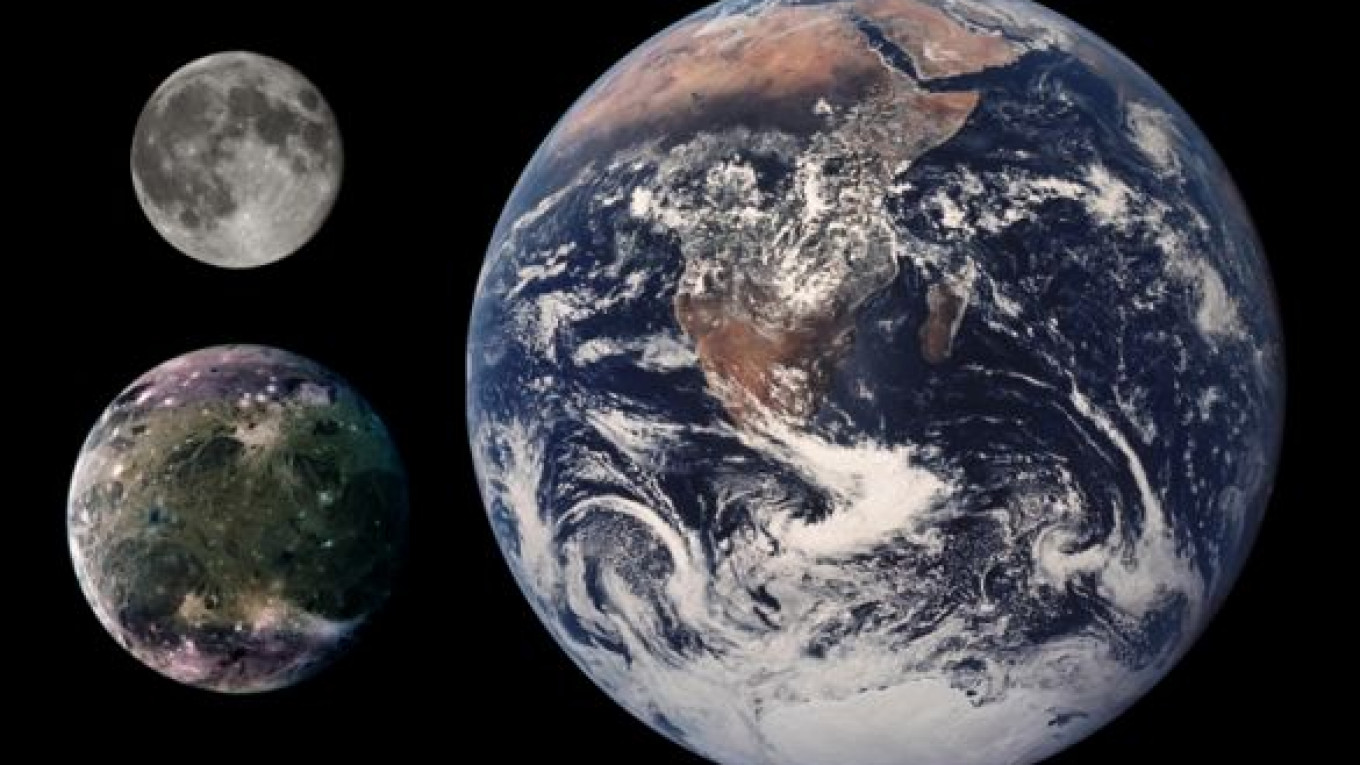Russia intends to launch a device to a moon of Jupiter in the 2020s to search for signs of life there, according to a presentation on the plans of the Russian space program given at a conference Thursday.
The project will also analyze Jupiter as a typical gas giant and seek to determine whether conditions on its moon of Ganymede will allow it to be colonized, according to a presentation on the strategic development of Russia's space program to 2030 given at the International Aerospace Salon in Moscow, Interfax reported.
The space program strategy presented at the conference is currently undergoing approval, the news agency said.
Russia's space program has suffered a string of failed launches in recent years, prompting Prime Minister Dmitry Medvedev earlier this month to order a reform plan drawn up by the Federal Space Agency.
One high-profile failure came in January, when Russia launched the unmanned Fobos-Grunt space probe, meant to fly to the Mars moon of Phobos to collect soil samples. The device malfunctioned and crashed into the Pacific Ocean days after takeoff.
Related articles:
A Message from The Moscow Times:
Dear readers,
We are facing unprecedented challenges. Russia's Prosecutor General's Office has designated The Moscow Times as an "undesirable" organization, criminalizing our work and putting our staff at risk of prosecution. This follows our earlier unjust labeling as a "foreign agent."
These actions are direct attempts to silence independent journalism in Russia. The authorities claim our work "discredits the decisions of the Russian leadership." We see things differently: we strive to provide accurate, unbiased reporting on Russia.
We, the journalists of The Moscow Times, refuse to be silenced. But to continue our work, we need your help.
Your support, no matter how small, makes a world of difference. If you can, please support us monthly starting from just $2. It's quick to set up, and every contribution makes a significant impact.
By supporting The Moscow Times, you're defending open, independent journalism in the face of repression. Thank you for standing with us.
Remind me later.






